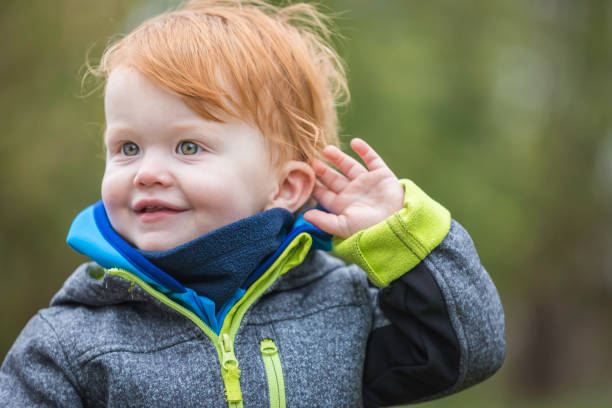Your Child’s Auditory Sensory Development
Hearing is the realization of the function of hearing. The proper realization of this function is of great importance in communicating with our environment. At the same time, having auditory skills in place will positively affect both learning and language and speaking skills. Some children may be very sensitive to sound or may not respond to the sound we expect. In such cases, it is important to perform the necessary examinations regarding the functionality of our ear, which is our sensory development organ. However, some problems may be due to the inadequacy of the warnings related to that sense alone.
Now, let’s review the symptoms of hypersensitivity regarding hearing, that is, the symptoms of being “sensitive” to sound:
– Being directed towards the slightest sound, being afraid of sounds such as hair dryers, drills, reacting negatively to sudden sounds (such as crying), or not wanting to enter loud environments (cinema, theatre, playgroups, etc.).
In case of hyposensitive symptoms, that is, being “insensitive” to sound:
Not responding to sound, not responding when you say the name, enjoying the noise (making noise for pleasure), watching television loudly, having difficulty understanding and remembering what is being said, not being able to recognize where the sound is coming from.
Materials to improve the sense of hearing…
We can use audio bracelets, audio mobiles, audio books, audio balls or boxes, as well as songs, CDs, musical instruments are very enjoyable materials for both rhythm and auditory studies.
But what if there is hearing loss?
Of course, as well as supporting the development of the sense of hearing, it is important to determine whether our children have hearing loss due to any hereditary or non-hereditary reason (it can be during birth or after). Even mild hearing loss causes mild language delay, mild speech impairment and mild learning difficulties. In the school period, it can lead to results such as distraction and failure in lessons. In such cases, while children can hear vowels comfortably, they may have difficulty hearing consonants such as “s, z”. This level of loss may go unnoticed, as the symptoms are so mild and your child is barely speaking. That’s why it’s best to have regular checkups. Your baby’s first hearing test has already been done at birth.
Particularly in the following cases, regular check-ups for hearing impairment every six months are important:
– Suspicion of hearing loss for any reason (not responding to instructions, too much language delay, etc.),
– Your child has had a serious head injury or illness that may affect hearing, such as meningitis.
– Fluid accumulation in the middle ear very often or for more than three months,
– Hereditary hearing loss in the family,
– Intrauterine infections (rubella, syphilis, herpes, etc.),
– Neurological diseases affecting the auditory nerve,
Over the past two years, nerve cells in different parts of your child’s brain have matured and myelination (wiring) process is complete. With the auditory stimuli we make with the materials mentioned above, many new nerve connections are formed between nerve cells in the brain and regions related to hearing. However, the inability to hear auditory stimuli due to any hearing loss impairs this neurological development. If the intervention is delayed, it can cause problems that are difficult to recover. For this reason, hearing loss in children should be checked regularly; This sense should be fed as much as possible with auditory stimuli. As always, early intervention is very important.
